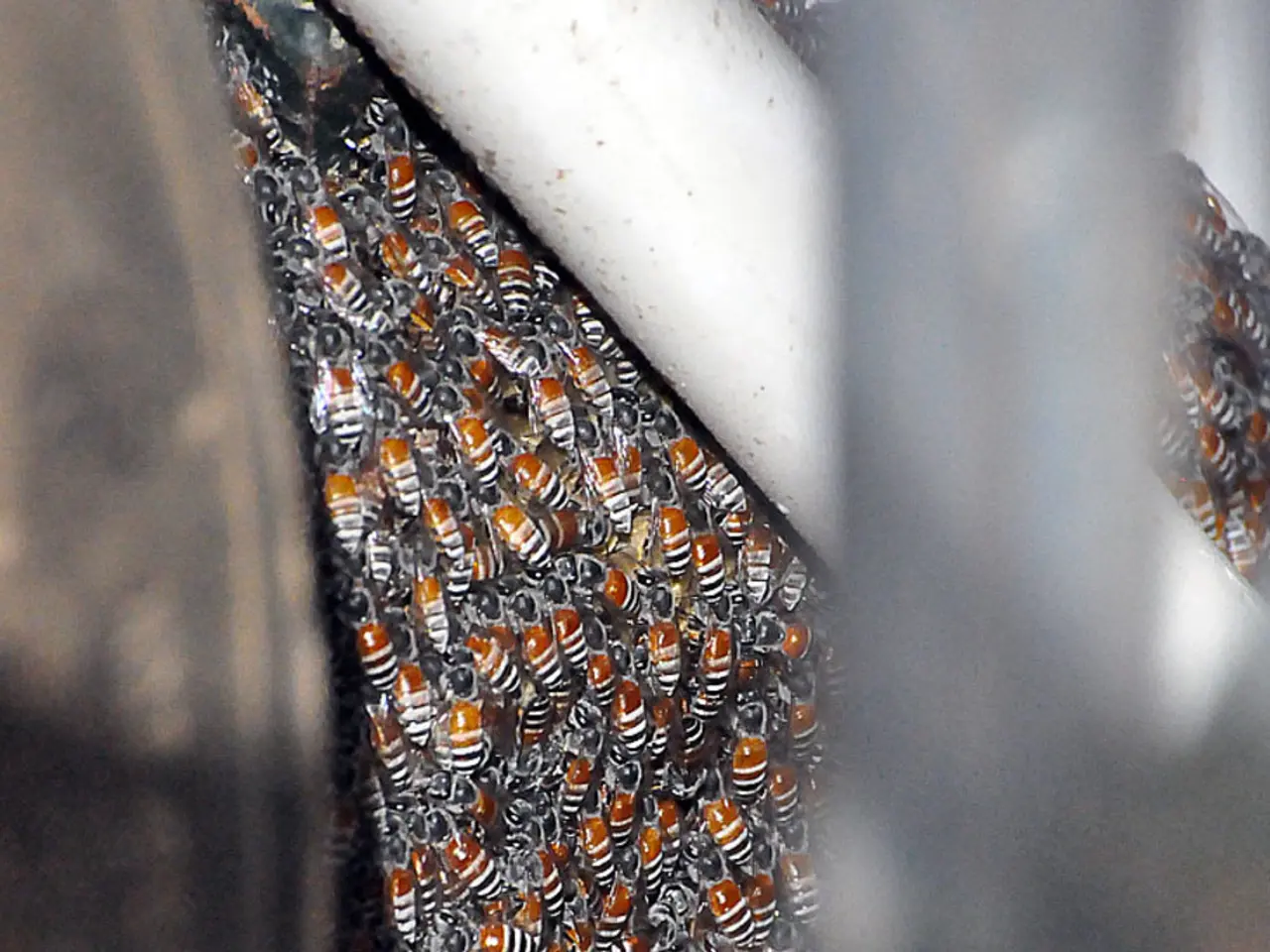Alert to Consumers from Beekeepers: A Plea for Support
In the heart of Europe, the European Beekeeping Association (EBA) is rallying to safeguard the future of bees and beekeeping, as well as the production of European food. Led by President Boštjan Noč, the EBA is calling on European Members of Parliament, Commissioners, and other decision-makers to support European beekeepers, farmers, and consumers.
The presence of bees and other pollinators is crucial for the production of European food, with every third spoonful of food in Europe depending on bee pollination. However, the EBA's concern is heightened by the alarming fact that nearly 50% of honey sold in Europe is fake, according to official data from the EU Commission. Most of the adulterated honey is imported from outside Europe.
Importing honey, but not the bee pollination service, poses a risk for European food production. The EBA's mission is to protect consumers from consuming fake bee products and ensure the enjoyment of real food. To this end, the EBA will immediately contact decision-makers in the European area to find a solution.
The EBA represents approximately 300,000 beekeepers from 19 European countries and advocates for the support of local bee products to strengthen health. The organisation's goal is to protect European beekeepers and farmers, and to protect consumers against adulterated food.
Honey is one of the most commonly adulterated foods, and the EBA acknowledges the importance of advances in detection, such as stable isotope analysis (carbon-13), in identifying adulteration that conventional methods might miss. These techniques are increasingly used to uncover fraudulent honey at retail levels.
For comprehensive information about the issue of honey adulteration in Europe and the EBA's efforts to combat it, consider the following resources:
- Visit the European Commission’s EU Library Guide on Food Fraud: This centralized resource lists selected publications and research on honey adulteration within Europe.
- Consult industry reports from market research sources such as Global Growth Insights and Market Business Insights, which provide current trends and challenges regarding honey adulteration in Europe and worldwide.
- Review scientific articles and publications on detection methods like stable isotope analysis, which explains how adulteration is detected and uncovered.
- Contact or check the websites of the European Beekeeping Association and relevant apicultural bodies for statements, policy updates, and initiatives they support to fight honey fraud.
By combining official EU resources, scientific research on detection methods, and industry-focused reports, you can develop a well-rounded understanding of honey adulteration in Europe and the ongoing multi-stakeholder efforts to combat it. The EBA's website offers downloadable PDF versions of their resources.
The EBA also emphasizes the importance of protecting European farmers and consumers from adulterated food, and the potential collapse of European beekeeping could lead to the end of the pollination service of bees, which would have devastating consequences for European food production. The new leadership of the European Union has been elected, and the EBA is hopeful that they will take decisive action to protect the future of bees, beekeepers, farmers, and consumers in Europe.
- The European Beekeeping Association (EBA) recognizes the crucial role of science, particularly stable isotope analysis, in detecting honey adulteration, a growing concern in the health-and-wellness sector and food-and-drink industry.
- In the general-news domain, the EBA is advocating for stronger politics to combat the issue of honey adulteration, which threatens the enjoyment of real food and the livelihoods of European beekeepers, farmers, and consumers.
- The EBA, representing the interests of health-and-wellness-focused beekeepers and consumers, is striving to promote lifestyle choices that support local bee products, ultimately bolstering European food production and safeguarding the pollination service of bees.




